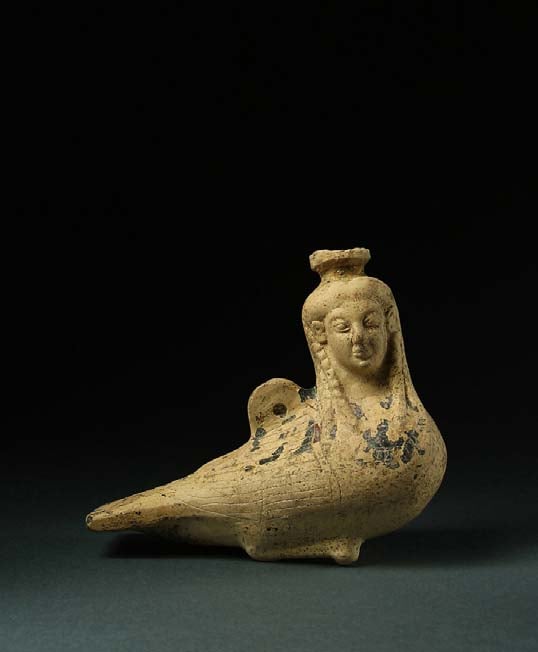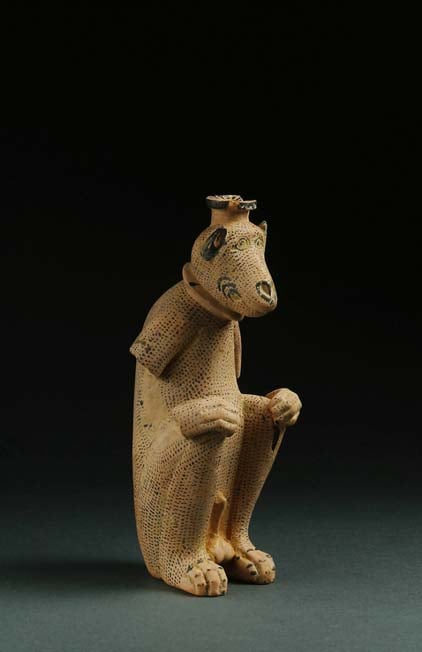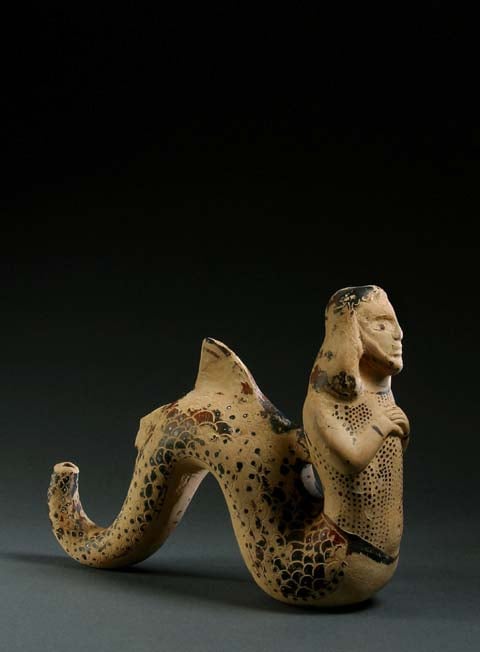Art World
In a Crackdown on ‘Illicit’ Antiquities, the Manhattan DA Seizes 6 Statues From Phoenix Fine Art
New York's crackdown on looted artifacts widens.

New York's crackdown on looted artifacts widens.

Henri Neuendorf

Investigators from the Manhattan district attorney’s office seized six artifacts valued at a combined $450,000 from New York antiquities dealers Phoenix Fine Art last Friday.
According to a search warrant issued by the New York Supreme Court, the items taken from the gallery include a Rhodian seated monkey from 580–550 BC (valued at $150,000), a Corinthian sea-serpent from the 6th century BC (valued at $140,000), and an Attic red-and-black female head flask from 500–490 B.C. (valued at $80,000). The gallery could face charges of criminal possession of stolen property, filings show.

Rhodian Seated Monkey with missing arms (580–550 BCE). Photo courtesy of Manhattan district attorney.
In a statement to artnet News, a spokesman for Phoenix Fine Art said, “We immediately notified the US private collection that consigned the works to us of the situation, and we do know that the works have a long museum exhibition history spanning from the Geneva Musée d’art et d’Histoire, 1978–1981, and at the Getty Museum, Los Angeles, 1984–1996.”
The afternoon seizure was part of a widening crackdown on illicit antiquities trafficking led by the Manhattan district attorney Cyrus R. Vance Jr. On the same day, Vance’s office also confiscated nine artifacts from the home and office of financier and collector Michael Steinhardt that the DA says were looted from Greece and Italy.

Corinthian figure representing a Sea-Serpent with a human torso and head of a man (6th century BCE). Photo courtesy of Manhattan district attorney.
Vance has vowed to battle the illicit antiquities trade in New York, a major global art and antiques marketplace, and has spearheaded a number of high-profile seizures across museums, private collections, art fairs, and commercial galleries. Vance’s pledge culminated in the formation of a dedicated antiquities trafficking unit last month.
According to a report in the New York Times, the district attorney’s aggressive approach has provoked criticism from some collectors, who argue that questions of provenance should be resolved in court, especially as many have spent millions of dollars on acquisitions and research.